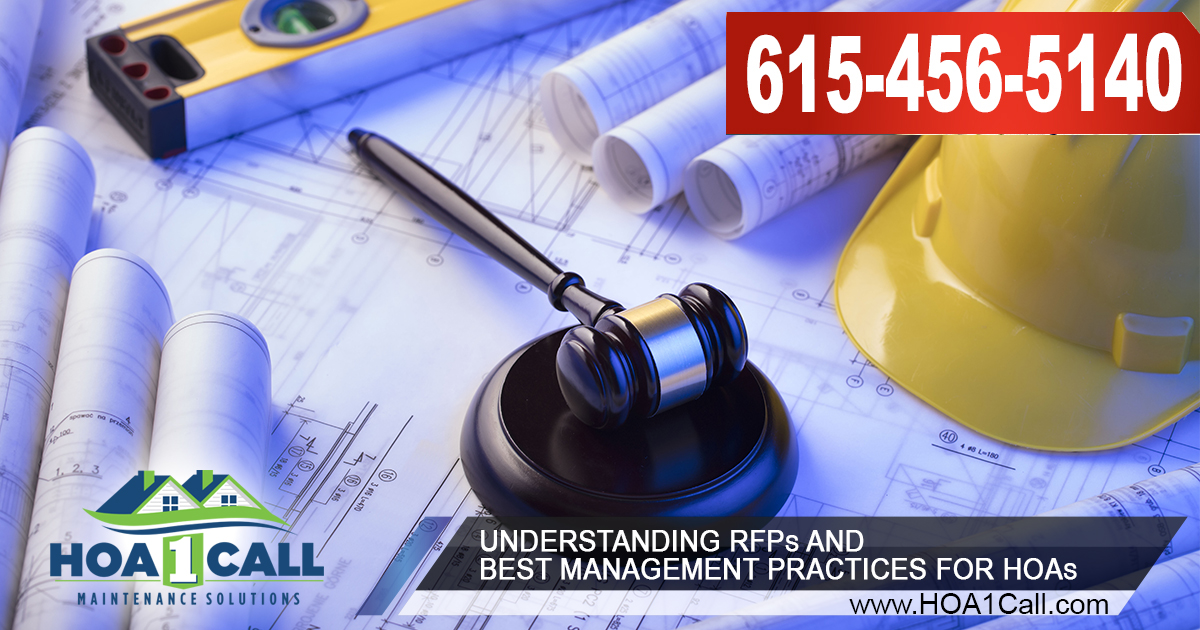In the realm of Homeowner Associations (HOAs), making informed decisions regarding service providers and vendors is paramount. One crucial tool in this process is the Request for Proposal (RFP), which allows HOA boards to solicit bids from potential vendors for various services such as landscaping, maintenance, and security. However, comparing proposals can often feel like comparing apples to oranges, leading to confusion and potentially suboptimal decisions. To address this issue, it's essential for HOA board members to employ Best Management Practices (BMPs) when evaluating RFP responses.
What is an RFP?
An RFP is a formal document that outlines the requirements and expectations of a project or service and invites potential vendors to submit proposals detailing how they would fulfill those requirements. For HOAs, RFPs are commonly used when seeking services such as landscaping, property management, and repairs.
The Challenge of Comparing Proposals
One of the primary challenges HOA board members face when reviewing RFP responses is ensuring that they are comparing proposals effectively. Without a standardized approach, it's easy to end up comparing apples to oranges, leading to confusion and uncertainty.
Implementing Best Management Practices (BMPs)
To facilitate a fair and objective evaluation process, HOA board members can implement the following BMPs:
- 1. Standardized Evaluation Criteria: Develop a set of standardized evaluation criteria that align with the HOA's priorities and objectives. These criteria should cover important aspects such as cost, quality of service, experience, and responsiveness.
- 2. Weighted Scoring System: Assign weights to each evaluation criterion based on its relative importance. For example, if cost is a significant factor, it may be assigned a higher weight than other criteria.
- 3. Objective Evaluation: Evaluate each proposal objectively based on the established criteria, avoiding bias or preconceived notions. Consider using a scoring rubric or matrix to facilitate the evaluation process.
- 4. Clarification Process: If certain aspects of a proposal are unclear or require further clarification, engage with the vendors to seek clarification before making a decision. This ensures that all proposals are evaluated based on complete and accurate information.
- 5. Consider Total Cost of Ownership: When evaluating cost, consider not only the upfront price but also the total cost of ownership over the life of the contract. Factors such as maintenance, support, and potential future expenses should be taken into account.
- 6. Due Diligence: Conduct thorough due diligence on each vendor, including checking references, reviewing past performance, and verifying credentials. This helps ensure that the selected vendor is capable of delivering on their promises.
RFPs are valuable tools for HOAs seeking to procure services from vendors. However, to ensure a fair and effective evaluation process, it's essential for board members to employ Best Management Practices (BMPs) when reviewing proposals. By standardizing evaluation criteria, using a weighted scoring system, conducting objective evaluations, seeking clarification when needed, considering total cost of ownership, and conducting due diligence on vendors, HOA board members can make informed decisions that benefit the community as a whole. By comparing apples to apples rather than apples to oranges, HOAs can select the best possible vendors to meet their needs.
